Detailed introduction of the National Polytechnic School of Algeria:
Introduction and Overview
Basic Information: The National Polytechnic School of Algeria is located in the Harash district of Algiers. The official website is http://www.enp-alger.edu.dz/.
Scale: It is a relatively small higher education institution with about 1,400 students.
History and Establishment
The school was founded in 1925 and was originally named the "Algerian Industrial College" to train senior technicians for large public services, industries and public engineering companies. After World War II, the school was renamed the "Algerian National Engineer School". In 1962, after Algeria's independence, the school was transformed into the current National Polytechnic School by a ministerial decree of June 25, 1963.
Nature of the institution
It is a non-profit public higher education institution.
Strength of the school
Faculty: It has a highly qualified teaching staff, including many experts and professors with rich experience and profound academic attainments in their respective fields.
Teaching achievements: The school has trained many outstanding graduates who play an important role in Algeria's industry, science and technology, engineering and other fields. The school has a high level of teaching and scientific research in the field of engineering technology, and has trained a large number of engineers and technical talents for the country.
International Exchange: Attach importance to international cooperation and exchanges, and have signed strategic cooperation agreements with many universities or research institutes in France, Belgium, Spain, Tunisia and other countries, providing students with broad international exchange and learning opportunities.
Educational philosophy
Cultivate innovative ability: Focus on cultivating students' innovative thinking and practical ability, encourage students to actively explore and dare to try new technologies and methods in the learning process, cultivate students' innovative consciousness and innovative ability, so that they can continue to innovate and develop in their future work.
Combination of theory and practice: Emphasize the educational model that combines theory with practice, through experimental courses, internships, graduation projects and other links, let students apply the theoretical knowledge they have learned to practice, and improve students' practical operation ability and problem-solving ability.
Key laboratories and disciplines
Key disciplines: It has strong strength and high teaching and scientific research level in engineering fields such as civil engineering, chemical engineering, materials engineering, mechanical engineering, electrical engineering, environmental engineering, water conservancy engineering, and green hydrogen energy. In recent years, cutting-edge disciplines such as data science and artificial intelligence have also been added.
Key laboratories: The school has a number of advanced laboratories, such as materials laboratories, chemical laboratories, mechanical laboratories, electrical laboratories, etc., which provide good conditions for students' experimental teaching and scientific research.
Department
The school mainly focuses on engineering disciplines, covering teaching and research in multiple engineering fields. It does not clearly divide specific departments, but has different professional directions and curriculum systems, including water conservancy engineering, green hydrogen energy, civil engineering, chemical engineering, materials engineering, mining engineering, industrial engineering, mechanical engineering, environmental engineering, electrical engineering, electronics, automation, data science and artificial intelligence and other majors.
Ranking
In the 2023 uniRank ranking, the school ranked 7241 in the world and 30th in Algeria.
Expenses
Tuition fees: As a public school, for Algerian students, tuition fees are usually subsidized by the government and are relatively low. The tuition fees for international students are relatively high, but the specific fees vary depending on the major and degree level.
Living expenses: The cost of living in Algiers is relatively moderate. The monthly living expenses of students, including accommodation, food, transportation, etc., are about US$300 to US$500, and the specific expenses vary from person to person.
Campus environment
Teaching facilities: It has modern teaching facilities and equipment, such as multimedia classrooms, computer rooms, libraries, etc. The library has a rich collection of books, journals and electronic resources in various disciplines, providing sufficient material support for students' learning and research.
Sports facilities: Provide opportunities and facilities for various sports activities, such as football fields, basketball courts, tennis courts, gyms, etc., to meet students' physical exercise needs.
Cultural atmosphere: The school pays attention to campus cultural construction and organizes a variety of campus cultural activities, such as academic lectures, cultural festivals, sports competitions, art exhibitions, etc., creating a positive, diverse and inclusive campus cultural atmosphere.
-
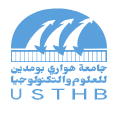
University of Sciences and Technology Houari Boumediene
-
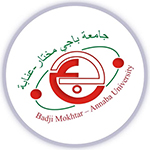
Badji Mokhtar University of Annaba
-
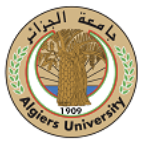
University of Algiers 1
-

University of Boumerdés
-
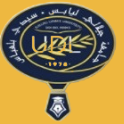
University of Sidi-Bel-Abbès
-
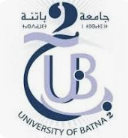
University of Batna 2
-
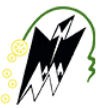
Univerisity of Tizi-Ouzou
-
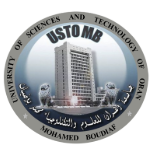
University of Science and Technology of Oran
-
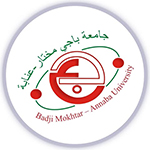
University of Annaba
-
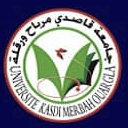
University of Ouargla
-

Mesoamerican University
-

Istmo University
-

Mariano Galvez University of Guatemala
-

Regional University of Guatemala
-

Galileo University
-

Francisco Marroquín University
-

Rafael Landívar University
-

University of the Valley of Guatemala
-

University of San Carlos of Guatemala
-

Technological Institute of Tlaxcala Plateau
-

Golfo University
-

Technological University of South Sonora
-

Technological University of Huejotzingo
-

Tizimín Institute of Technology
-

Chilpancingo Institute of Technology

